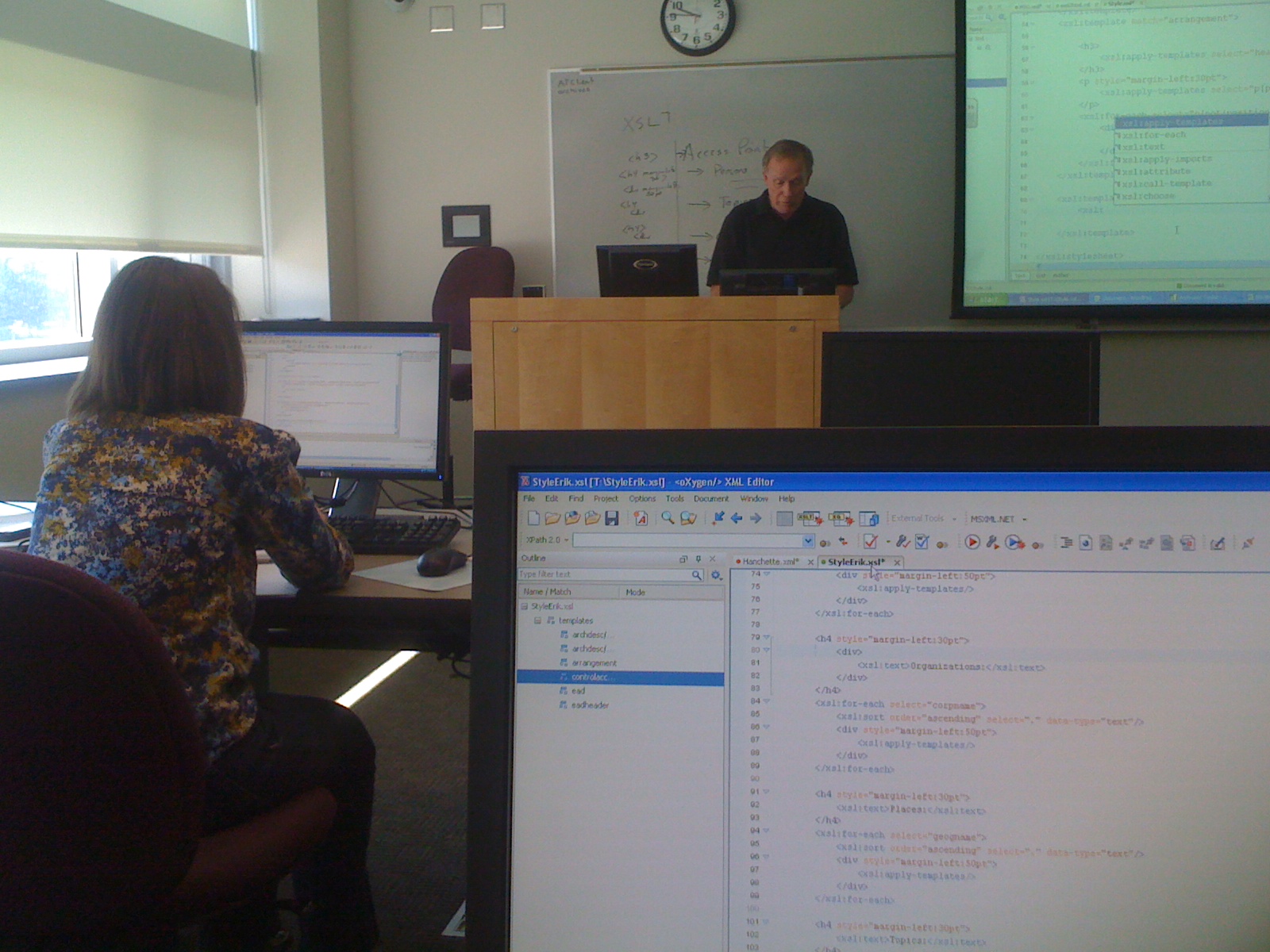
The Archives was closed Thursday-Friday, September 8-9, 2011, so that staff could be trained in several new software tools.
Michael Fox, recently retired from the Minnesota Historical Society, spent three days with staff of the Michigan Tech Archives (as well as some other friends). Fox reviewed some basic elements of how manuscript collections differ from museum and library collections. It is important to realize that unlike other item-level collections, archives have complex inter-relations within their manuscript collections. Very few archives catalog material to the item level. Instead, they gather descriptive data at the collection level, as well as information about groupings of documents in folders or within collections as records series. The hierarchical relationship between individual documents, the folders they reside in, the series of which they were created, as well as the overall collections which hold them require complex systems of description.
Encoded archival description (EAD) is a standard which has emerged in recent years to help archivists create and hold this type of hierarchical descriptive information. It uses extensible mark-up language (xml) to take previous types of written inventories and finding aids and turn them into a standardized data format (it also relies on a descriptive standard called “describing archives: a content standard,” or DACS, to ensure that the contents of individual fields is consistent across the board). With information about our collections held in EAD format, the Michigan Tech Archives will be able to export information to web sites and other places where potential researchers might discover our collections.
This work is not for the faint of heart, however, and will involve many changes in the way that we do our work at the Michigan Tech Archives. One of these changes will be the migration of collections information to a new open source archival collections management software tool called Archivists’ Toolkit. AT will allow us to gather a variety of information about our collections, including both descriptive information and internal administrative notes about preservation and processing. From AT, we’ll be able to output descriptive information compliant to the EAD standard. We’ll also be able to export catalog records compliant to the library world’s MARC standard. In these formats, we’ll be able to update and share information through sites like OCLC’s Worldcat and ArchiveGrid.
Although this may sound like technical mumbo-jumbo to some of our non-archivist researchers, it will mean a dramatic improvement to the variety and level of information that researchers may discover about our holdings.
We were pleased to have Fox’s training workshop supported through grant monies from the National Historical Records and Publications Commission. Over the course of the last two years, NHPRC’s funding of our current ‘basic archives’ grant has provided the first steps in this move toward better and more standardized description. During this period, we have already created collection-level records for each of the manuscript collections held at the Michigan Tech Archives (you can read some of these on our blog over here). With NHPRC funding for Michael Fox’s visit, we made the first steps toward implementation of Archivists’ Toolkit, EAD, and the next steps in our program.
Look for additional updates here.